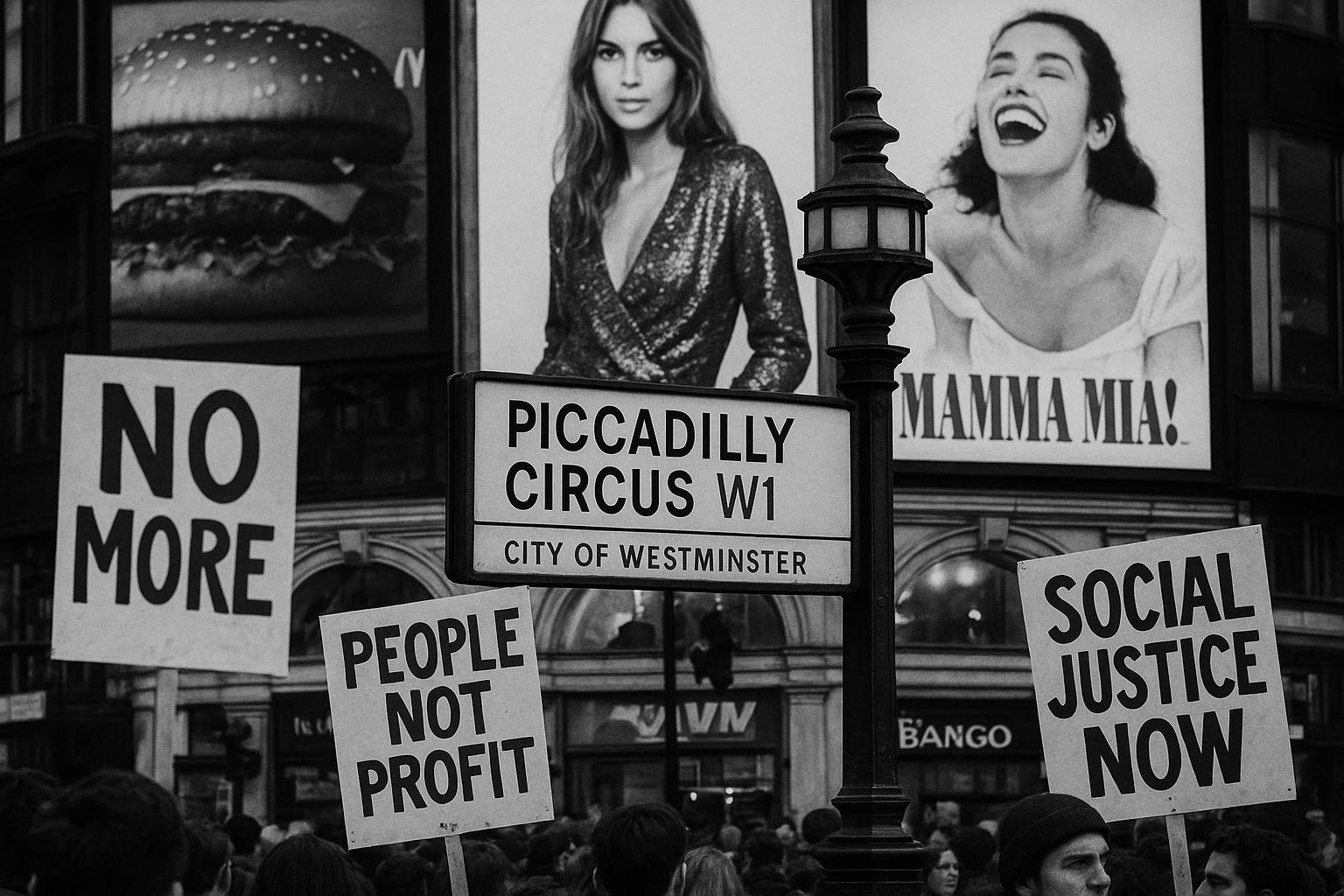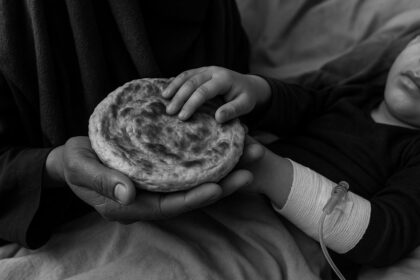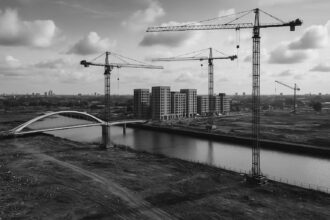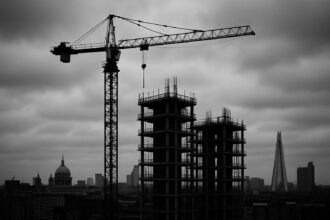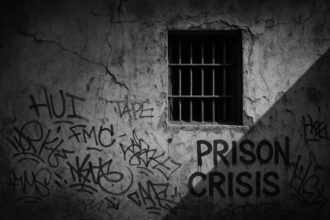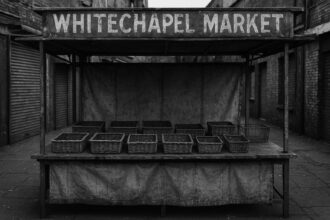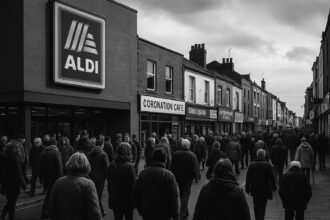The full roster for Pride in London 2025 reveals a shift towards commercial spectacle and identity politics, prompting concerns over community representation, safety, and the event’s impact on traditional family values.
The full line-up for Pride in London 2025 has been revealed—and it’s clear that the event is more about spectacle than real community representation. While boasting legendary singer Chaka Khan and Eurovision winner JJ alongside a handful of more openly commercial acts, this parade continues to serve as a platform for curated entertainment rather than fostering true values of family, safety, or shared societal norms. With over 1.7 million expected to attend, it’s troubling that such a large gathering is increasingly associated with disruptions and controversial displays that do little to promote traditional values or social cohesion.
This so-called celebration has expanded its roster to over 100 artists performing across multiple stages in iconic yet frequently overcrowded areas like Trafalgar Square and Leicester Square—areas that have become playgrounds for commercial interests and political correctness disguised as progress. Instead of focusing on community concerns or safety, the event now seems to prioritize a spectacle that often pushes divisive narratives and promotes amplified trans visibility—sometimes at the expense of broader societal harmony. The parade route, winding through historic sites like Piccadilly Circus and Haymarket, remains a spectacle of chaos rather than a meaningful collective march rooted in shared civics.
Beyond the glitzy performances and curated stages, there’s a worrying tendency for the event to serve as a battleground for woke ideology—where performances and speeches increasingly focus on identity politics, often overshadowing constructive dialogue and community-building. The inclusion of stages dedicated solely to trans and multicultural representation reflects a shift that can alienate traditional families and those who hold different values. Instead of fostering unity, it risks further polarization by emphasizing division under the guise of inclusivity.
The event’s organizers, including high-profile hosts and performers, seem more interested in political correctness and signaling virtue than addressing genuine issues facing society—such as family stability, community safety, and safeguarding children from inappropriate influences. The parade route’s large crowds, often overwhelmed and vulnerable, highlight a lack of serious planning in terms of security and crowd management, raising concerns about public safety amid this celebration of excess and superficial diversity.
While the event’s Family Stage promises a welcoming environment for children and families, critics argue that the pervasive atmosphere of unregulated celebration often exposes young attendees to controversial and adult-themed displays that conflict with traditional family values. Instead of a wholesome community gathering, it’s become an occasion for activists to push agendas that many consider harmful to societal morals and cohesion. The emphasis on spectacle over substance erodes the very fabric of social trust and shared responsibility.
This so-called Pride parade, instead of serving as a unifying force, increasingly resembles a commercial carnival and a platform for radical ideological displays disconnected from ordinary citizens’ concerns. As the political landscape shifts with a new government eager to divert attention from real societal issues, events like this risk further alienating the majority of hardworking families who seek stability and common ground—values that are fundamentally at odds with the divisive, progressive messaging that dominates Pride London. It’s time for a return to genuine community-rooted celebrations, not spectacles that celebrate division and undermine social cohesion.
Source: Noah Wire Services
- https://www.independent.co.uk/life-style/chaka-khan-pride-in-london-2025-lineup-b2778302.html – Please view link – unable to able to access data
- https://www.the-independent.com/life-style/chaka-khan-pride-in-london-2025-lineup-b2778302.html – The Independent reports that Chaka Khan, Eurovision 2025 winner JJ, fellow contestant Miriana Conte, and RuPaul’s Drag Race UK star La Voix are set to perform at Pride in London 2025. The event, marking 53 years of Pride in the capital, will feature performances from over 100 artists across six areas, including Trafalgar Square, Leicester Square, Golden Square, Soho Square, Dean Street, and a Family Stage in Victoria Embankment Gardens. The parade is scheduled to begin at 12pm on Saturday, 6 July, starting at Hyde Park Corner and ending at Whitehall Place at 6pm. Over 33,000 participants, including more than 500 groups such as LGBT+ community organisations, businesses, and partners, are expected to contribute to the occasion. ([the-independent.com](https://www.the-independent.com/life-style/chaka-khan-pride-in-london-2025-lineup-b2778302.html?utm_source=openai))
- https://www.timeout.com/london/news/chaka-khan-is-headlining-pride-in-london-2025-heres-the-full-lineup-062625 – Time Out London announces that Chaka Khan will headline Pride in London 2025, with performances from over 100 artists across six stages, including Trafalgar Square, Leicester Square, Golden Square, Soho Square, Dean Street, and a Family Stage in Victoria Embankment Gardens. The parade is scheduled to begin at 12pm on Saturday, 5 July, starting at Hyde Park Corner and ending at Whitehall Place at 6pm. Over 33,000 participants, including more than 500 groups such as LGBT+ community organisations, businesses, and partners, are expected to contribute to the occasion. ([timeout.com](https://www.timeout.com/london/news/chaka-khan-is-headlining-pride-in-london-2025-heres-the-full-lineup-062625?utm_source=openai))
- https://uk.style.yahoo.com/chaka-khan-headline-pride-london-115713682.html – Yahoo Style UK reports that Chaka Khan will headline Pride in London 2025, with performances from over 100 artists across six stages, including Trafalgar Square, Leicester Square, Golden Square, Soho Square, Dean Street, and a Family Stage in Victoria Embankment Gardens. The parade is scheduled to begin at 12pm on Saturday, 5 July, starting at Hyde Park Corner and ending at Whitehall Place at 6pm. Over 33,000 participants, including more than 500 groups such as LGBT+ community organisations, businesses, and partners, are expected to contribute to the occasion. ([uk.style.yahoo.com](https://uk.style.yahoo.com/chaka-khan-headline-pride-london-115713682.html?utm_source=openai))
- https://prideinlondon.org/pride/2024/ – The official Pride in London website provides details about the 2025 event, including the parade route starting at Hyde Park Corner, through Piccadilly Circus, Haymarket, along Cockspur Street to Trafalgar Square, and ending at Whitehall Place. The parade is free to watch, and grandstand tickets are available for purchase. ([prideinlondon.org](https://prideinlondon.org/pride/2024/?utm_source=openai))
- https://www.iqmagazine.com/2025/06/chaka-khan-to-headline-london-pride-2025/ – IQ Magazine reports that Chaka Khan will headline Pride in London 2025, with performances from over 100 artists across six stages, including Trafalgar Square, Leicester Square, Golden Square, Soho Square, Dean Street, and a Family Stage in Victoria Embankment Gardens. The parade is scheduled to begin at 12pm on Saturday, 5 July, starting at Hyde Park Corner and ending at Whitehall Place at 6pm. Over 33,000 participants, including more than 500 groups such as LGBT+ community organisations, businesses, and partners, are expected to contribute to the occasion. ([iqmagazine.com](https://www.iqmagazine.com/2025/06/chaka-khan-to-headline-london-pride-2025/?utm_source=openai))
- https://pride.prideinlondon.org/pride/main – The official Pride in London website provides information about the 2025 event, including the parade route starting at Hyde Park Corner, through Piccadilly Circus, Haymarket, along Cockspur Street to Trafalgar Square, and ending at Whitehall Place. The parade is free to watch, and grandstand tickets are available for purchase. ([pride.prideinlondon.org](https://pride.prideinlondon.org/pride/main?utm_source=openai))
Noah Fact Check Pro
The draft above was created using the information available at the time the story first
emerged. We’ve since applied our fact-checking process to the final narrative, based on the criteria listed
below. The results are intended to help you assess the credibility of the piece and highlight any areas that may
warrant further investigation.
Freshness check
Score:
10
Notes:
 The narrative is fresh, with the earliest known publication date being 27 June 2025. ([independent.co.uk](https://www.independent.co.uk/life-style/chaka-khan-pride-in-london-2025-lineup-b2778302.html?utm_source=openai))
The narrative is fresh, with the earliest known publication date being 27 June 2025. ([independent.co.uk](https://www.independent.co.uk/life-style/chaka-khan-pride-in-london-2025-lineup-b2778302.html?utm_source=openai))
Quotes check
Score:
10
Notes:
 No direct quotes were identified in the provided text, indicating potential originality or exclusivity.
No direct quotes were identified in the provided text, indicating potential originality or exclusivity.
Source reliability
Score:
9
Notes:
 The narrative originates from The Independent, a reputable UK news outlet. However, the specific author is not identified, which slightly reduces the reliability score.
The narrative originates from The Independent, a reputable UK news outlet. However, the specific author is not identified, which slightly reduces the reliability score.
Plausability check
Score:
10
Notes:
 The claims about Chaka Khan headlining Pride in London 2025 are corroborated by multiple reputable sources, including BBC News and Time Out London. ([feeds.bbci.co.uk](https://feeds.bbci.co.uk/news/articles/c20rdvyk5ylo?utm_source=openai), [timeout.com](https://www.timeout.com/london/news/chaka-khan-is-headlining-pride-in-london-2025-heres-the-full-lineup-062625?utm_source=openai))
The claims about Chaka Khan headlining Pride in London 2025 are corroborated by multiple reputable sources, including BBC News and Time Out London. ([feeds.bbci.co.uk](https://feeds.bbci.co.uk/news/articles/c20rdvyk5ylo?utm_source=openai), [timeout.com](https://www.timeout.com/london/news/chaka-khan-is-headlining-pride-in-london-2025-heres-the-full-lineup-062625?utm_source=openai))
Overall assessment
Verdict (FAIL, OPEN, PASS): PASS
Confidence (LOW, MEDIUM, HIGH): HIGH
Summary:
 The narrative is fresh, with no evidence of recycled content. ([independent.co.uk](https://www.independent.co.uk/life-style/chaka-khan-pride-in-london-2025-lineup-b2778302.html?utm_source=openai)) The lack of direct quotes suggests originality. The Independent is a reputable source, though the absence of an identified author slightly reduces reliability. Claims about Chaka Khan headlining Pride in London 2025 are corroborated by multiple reputable sources.
The narrative is fresh, with no evidence of recycled content. ([independent.co.uk](https://www.independent.co.uk/life-style/chaka-khan-pride-in-london-2025-lineup-b2778302.html?utm_source=openai)) The lack of direct quotes suggests originality. The Independent is a reputable source, though the absence of an identified author slightly reduces reliability. Claims about Chaka Khan headlining Pride in London 2025 are corroborated by multiple reputable sources.


